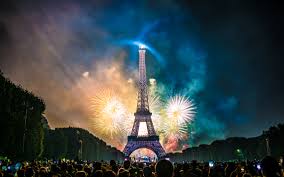What is Bastille Day and Why Does it Matter?

Understanding Bastille Day
Bastille Day, celebrated on July 14 each year, is a pivotal national holiday in France, commemorating the storming of the Bastille prison in 1789. This event marked the beginning of the French Revolution, which ultimately led to the establishment of the French Republic. The significance of this day extends beyond France; it represents the fight for liberty, equality, and fraternity, ideals that resonate globally.
The Historical Context
The Bastille, a medieval fortress and prison in Paris, was seen by revolutionaries as a symbol of royal oppression. On July 14, 1789, a group of citizens stormed the Bastille, demanding arms and ammunition, which ignited widespread revolts against the monarchy. This act of defiance against King Louis XVI’s regime is often referred to as the ‘birth of the modern French state.’ The fall of the Bastille signified the people’s power and the start of a long-lasting quest for democratic rights.
How is Bastille Day Celebrated?
Today, Bastille Day is celebrated with fervour across France and in various French-speaking regions. Events include military parades, fireworks, concerts, and community festivals. The highlight of the day is the grand military parade on the Champs-Élysées in Paris, attended by the President of France, military leaders, and spectators from around the world. Fireworks are set off at night, illuminating landmarks, including the iconic Eiffel Tower.
Bastille Day Around the World
In addition to festivities in France, Bastille Day is celebrated in various countries with historical ties to France. Parades and parties often occur in cities like New York, Toronto, and Sydney, showcasing French culture through food, music, and dance. The universal themes of the celebration resonate with many who aspire to freedom and equality.
Conclusion: The Significance of Bastille Day
As Bastille Day approaches each year, it serves as a reminder of the historical struggles for freedom and the ongoing quest for democracy worldwide. Recognised by people of different nations, the day embodies the spirit of resilience in the face of oppression. For many, Bastille Day is not just a celebration of France’s past, but a call to safeguard and celebrate universal human rights and the democratic ideals that unite us all.









